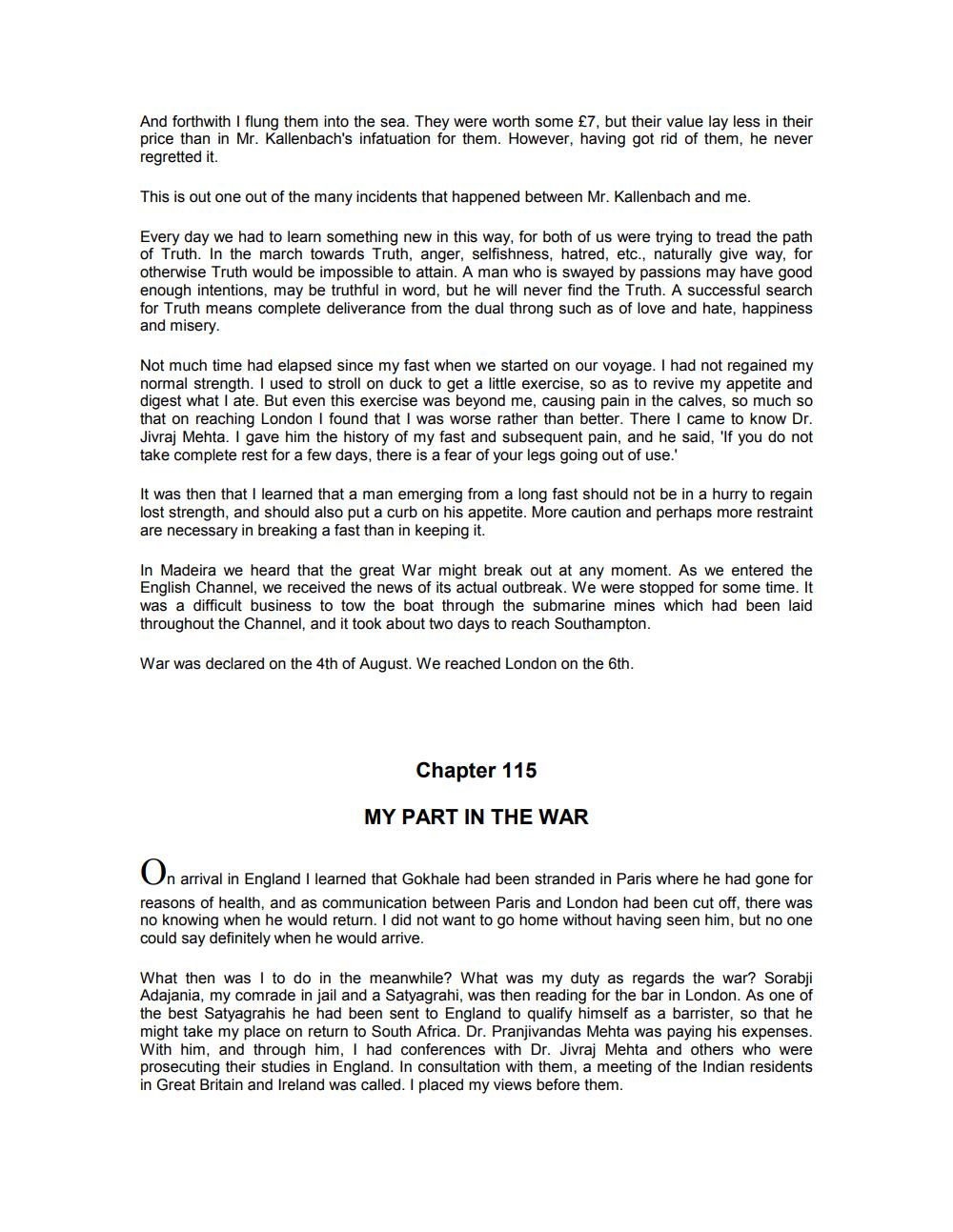________________
And forthwith I flung them into the sea. They were worth some £7, but their value lay less in their price than in Mr. Kallenbach's infatuation for them. However, having got rid of them, he never regretted it.
This is out one out of the many incidents that happened between Mr. Kallenbach and me.
Every day we had to learn something new in this way, for both of us were trying to tread the path of Truth. In the march towards Truth, anger, selfishness, hatred, etc., naturally give way, for otherwise Truth would be impossible to attain. A man who is swayed by passions may have good enough intentions, may be truthful in word, but he will never find the Truth. A successful search for Truth means complete deliverance from the dual throng such as of love and hate, happiness and misery.
Not much time had elapsed since my fast when we started on our voyage. I had not regained my normal strength. I used to stroll on duck to get a little exercise, so as to revive my appetite and digest what I ate. But even this exercise was beyond me, causing pain in the calves, so much so that on reaching London I found that I was worse rather than better. There I came to know Dr. Jivraj Mehta. I gave him the history of my fast and subsequent pain, and he said, 'If you do not take complete rest for a few days, there is a fear of your legs going out of use.'
It was then that I learned that a man emerging from a long fast should not be in a hurry to regain lost strength, and should also put a curb on his appetite. More caution and perhaps more restraint are necessary in breaking a fast than in keeping it.
In Madeira we heard that the great War might break out at any moment. As we entered the English Channel, we received the news of its actual outbreak. We were stopped for some time. It was a difficult business to tow the boat through the submarine mines which had been laid throughout the Channel, and it took about two days to reach Southampton.
War was declared on the 4th of August. We reached London on the 6th.
Chapter 115
MY PART IN THE WAR
In arrival in England I learned that Gokhale had been stranded in Paris where he had gone for reasons of health, and as communication between Paris and London had been cut off, there was no knowing when he would return. I did not want to go home without having seen him, but no one could say definitely when he would arrive.
What then was I to do in the meanwhile? What was my duty as regards the war? Sorabji Adajania, my comrade in jail and a Satyagrahi, was then reading for the bar in London. As one of the best Satyagrahis he had been sent to England to qualify himself as a barrister, so that he might take my place on return to South Africa. Dr. Pranjivandas Mehta was paying his expenses. With him, and through him, I had conferences with Dr. Jivraj Mehta and others who were prosecuting their studies in England. In consultation with them, a meeting of the Indian residents in Great Britain and Ireland was called. I placed my views before them.




